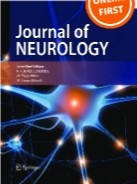publications
Go Back

Multi-gene testing in neurological disorders showed an improved diagnostic yield: data from over 1000 Indian patients
Abstract
Background Neurological disorders are clinically heterogeneous group of disorders and are major causes of disability and
death. Several of these disorders are caused due to genetic aberration. A precise and confirmatory diagnosis in the patients
in a timely manner is essential for appropriate therapeutic and management strategies. Due to the complexity of the clinical
presentations across various neurological disorders, arriving at an accurate diagnosis remains a challenge.
Methods We sequenced 1012 unrelated patients from India with suspected neurological disorders, using TruSight One
panel. Genetic variations were identified using the Strand NGS software and interpreted using the StrandOmics platform.
Results We were able to detect mutations in 197 genes in 405 (40%) cases and 178 mutations were novel. The highest
diagnostic rate was observed among patients with muscular dystrophy (64%) followed by leukodystrophy and ataxia (43%,
each). In our cohort, 26% of the patients who received definitive diagnosis were primarily referred with complex neurological
phenotypes with no suggestive diagnosis. In terms of mutations types, 62.8% were truncating and in addition, 13.4% were
structural variants, which are also likely to cause loss of function.
Conclusion In our study, we observed an improved performance of multi-gene panel testing, with an overall diagnostic yield
of 40%. Furthermore, we show that NGS (next-generation sequencing)-based testing is comprehensive and can detect all
types of variants including structural variants. It can be considered as a single-platform genetic test for neurological disorders
that can provide a swift and definitive diagnosis in a cost-effective manner.
Click this link to access the complete article.
08 May, 2019
Share this article
Queries ? Ask Us




